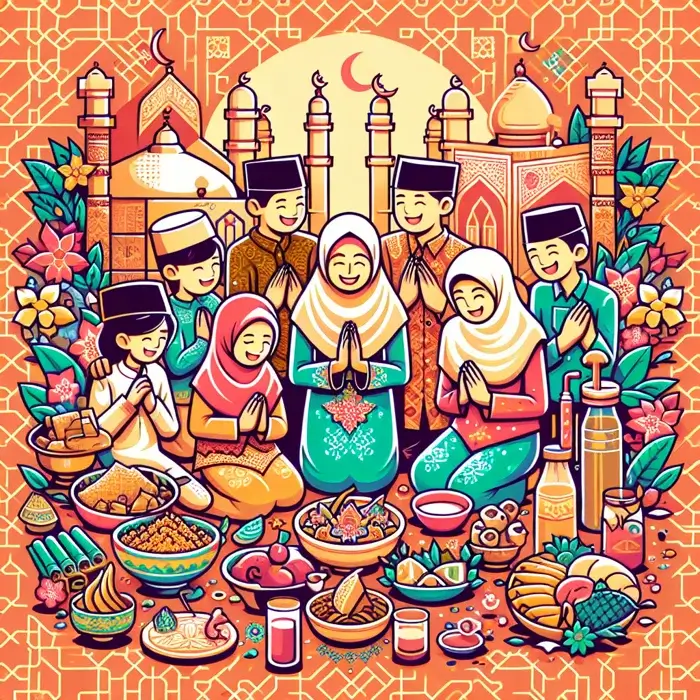Idul Fitri Joint Holiday in Indonesia
Use our holiday API to get the exact date of Idul Fitri in Indonesia in every year.
Introduction

Idul Fitri or Eid al-Fitr is one of the biggest religious festivals observed by Muslims all over the world. In Indonesia, the biggest Muslim-majority nation, the celebration is more meaningful for declaring the end of Ramadan, the month of fasting from dawn until dusk. While celebrating Idul Fitri is important, equally important is the Idul Fitri Joint Holiday or Cuti Bersama. This public holiday is when families come together, strengthening ties, sharing many communal activities, and engaging in customary practices.
Meaning and Significance of Idul Fitri
The meaning of the term "Idul Fitri" in Arabic is "Festival of Breaking the Fast," meaning the conclusion of one's fasting in Ramadan. The day is celebrated in happiness and gratitude, reflecting the time of the year for forgiveness, self-reflection, and humility. The day is characterized by the gathering of family members from all over the country, renewing broken relationships, and giving alms and charity; values that form the core of an Islamic way of life.
Observance and Celebration

When is Idul Fitri Celebrated?
After the 29 or 30 days of Ramadan, Idul Fitri is celebrated during the first day of Shawwal, the tenth month of the Islamic lunar calendar. Because it is lunar, Idul Fitri is called at a differing time every year, governed by the sighting of the moon. For that reason, Muslims wait for official announcements from recognized religious authorities to declare the starting date and moon sighting for this festival.
Traditions and Activities
Celebrations commence with the important Salat al-Eid, a special prayer held in mosques or great open fields. People wear their best garments, preferably new ones, symbolizing novelty and purity. Among the day's activities, visiting family and friends is unique; everyone asks and grants maaf-zahiran bathin (forgiveness) to strengthen ties and begin afresh.
During this period, feasting begins and all sorts of delectable Indonesian cuisines, such as ketupat (rice cakes), opor ayam (chicken curry), and various traditional sweets, are made and given out amongst each other. This affirms the very spirit of community and generosity.
Role of the Idul Fitri Joint Holiday
The Idul Fitri Joint Holiday is an extension of a holiday introduced by the Indonesian government that allows individuals to be off for a certain number of days towards or away from Idul Fitri. It is time for a mass exodus or mudik. Through Cuti Bersama, this amounts to "going home" for most people. Cities like Jakarta experience decongestion during this time, where millions of its residents start travelling back to their places of origin, where they will celebrate it with their family.
Effect on Services and Facilities

Like other effects in many places in Indonesia, there is also an Idul Fitri Joint Holiday in many sectors. Most banks, schools, and government agencies close during this period. The hospitals continue with limited manpower service. Many museums and attractions are also open but at reduced hours or capacity in addition to some businesses.
Historical Background
The custom of Idul Fitri Joint Holiday came into being as a government campaign for family bonds that deterred load in travel. Several holidays are made public holidays at a stretch so that people can do non-peak travelling. This would reduce traffic jams and lessen the economic input on budge, so one can celebrate fully their cultural and religious activities.
Conclusion
Idul Fitri along with the Idul Fitri Joint Holiday are indeed part of the Indonesian culture. It engraves on each individual's memory a time of merriment, a time of forgiveness, and quite a bit of a collective harmony. It's a time of religious observation by many, as well as a time for coming together and is thus highly valued by millions across the archipelago. Engaging with such a vibrant tradition is testimony to the wealth of diverse culture in this nation and to values of compassion and reconciliation.